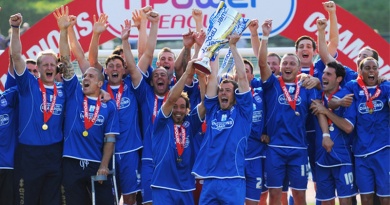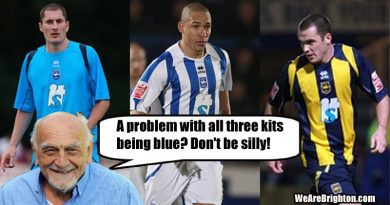Lest We Forget – The Albion’s nine Great War Dead

The Great War touched every corner of Britain. Between 1914 and 1918, it claimed the lives of over 850,000 British Soldiers fighting across the continent.
Four Brighton and Hove Albion players lost their lives across the English Channel. Four former players were killed in action. The Goldstone’s much-loved former groundsman was killed within a few months of the conflict, while the football season was still going on.
On the Remembrance Sunday, we remember those nine heroes with Brighton and Hove Albion connections who made the Ultimate Sacrifice during The Great War.
Lest We Forget.
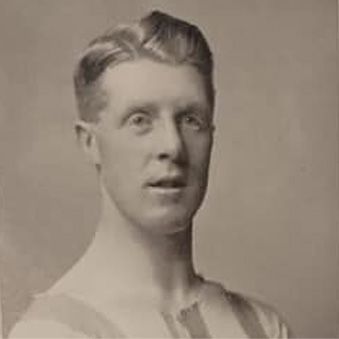
Jasper Batey
Nicknamed “Ginger” after the popular ginger beer of the time, Jasper Batey signed for Brighton in the summer of 1913 having scored 26 goals as a centre forward for Portsmouth the previous season. In a move that Mark McGhee would’ve been proud of, manager Jack Robson decided to convert him into a defender. Ginger only played 10 times during his first season at the club but made the left-half back position his own in 1914-15, playing in 20 of the clubs 23 games before he enlisted with the Footballers’ Battalion of the Middlesex Regiment in February 1915, at which point his Albion career was at an end after 40 appearances and four goals. Ginger was killed on October 23rd 1915 at the age of 25 while serving as a messenger with the Army Cyclist Corps. He is buried in the Cambrin Military Cemetery in France.
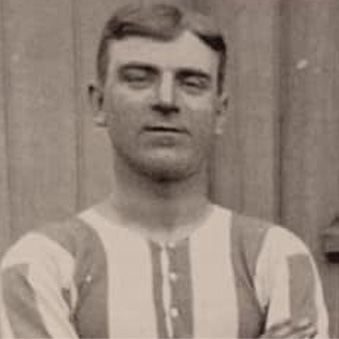
Charlie Dexter
Left back Charlie Dexter began his career at Sheffield Wednesday but was unable to break into the Owl’s star-studded team of the time. He moved to Portsmouth but found opportunities at Fratton Park limited, making just 14 appearances across two seasons and becoming only the second ever Pompey player to be sent off in one of those against Northampton Town. Charlie had just completed his seven-day suspension for that misdemeanour when he joined the Albion, going onto make the left back spot his own in the 1914-15 season. He started 36 of the first 37 games of the campaign before enlisting in April 1915. He lost his life a year later while serving with the Warwickshire Regiment.
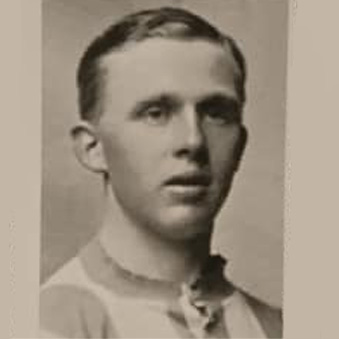
Charlie Matthews
Charlie Matthews lived the dream of every Sussex-born footballer. He began his career with Horsham and represented Sussex before joining the Albion in December 1911, racking up 12 appearances and scoring once across his three seasons at the Goldstone. Charlie was serving as a private with the Royal Sussex Regiment when he lost his life aged 27 on August 19th 1916 during the Battle of the Somme.
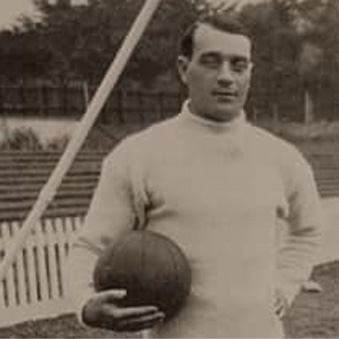
Bob Whiting
Bob Whiting was one of the finest goalkeepers ever to play for Brighton. Between 1908 and 1915, he made 320 appearances for the Albion after signing from Chelsea at the age of 25 and became known for his brilliant distribution. He would often take part in “goal kick competitions” and was even rumoured to have cleared the opposition crossbar with a kick from his own half. Bob was in goal as the Albion won the Southern League title in the 1909-10 season, playing every game and conceding just 28 goals along the way, still a club record in a season consisting of more than 42 games to this day. The following September, he kept a clean sheet against Football League champions Aston Villa to help Brighton to the Charity Shield and the title of unofficial champions of England. He enlisted with the Army at the outbreak of war but still played a handful of games towards the end of the 1914-15 season. Bob was posted to France in November 1915 and was killed aged 34 on April 24th 1917 by enemy shell-fire while attending the wounded at Vimy Ridge.
These former Brighton players also lost their lives in the Great War…
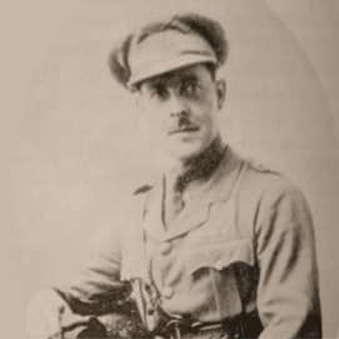
Alan Haigh-Brown
Alan Haigh-Brown was a real talent. He was a soldier, had a Masters degree from Cambridge, had three books published and wrote for The Times. He also played as an amateur for both Tottenham Hotspur and Clapton Orient. He joined the staff of Lancing College in 1899 and it was during his time as a teacher there that he made three appearances for the Albion as a fleet-footed winger. Alan reached the rank of lieutenant-colonel during the conflict, commanded the 23rd Battalion of the Middlesex Regiment and was awarded the Distinguished Service Order for bravery as well as being mentioned twice in dispatches. Alan lost his life near Bapaume during the Second Battle of the Somme.
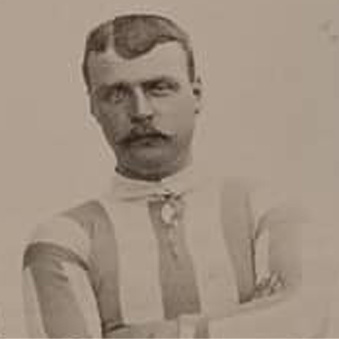
Arthur Hulme
One of the greatest characters in the first decade of the Albion’s existence, full back Arthur Hulme was the fifth man to captain the club when he took the armband for the 1905-06 season. He arrived from Bristol Rovers in August 1902 and went onto play 174 times, including as part of the side that won promotion to Division One of the Southern League in 1903 – the club’s first ever promotion. Arthur’s popularity was such that he became the first player to be honoured with a benefit match in 1907 and he retired in 1909 to take up the managers post at his home-town club Leek United. He maintained a keen interest in goings on at the Goldstone from afar, even recommending young players from Leek that he felt could make it as professionals. Arthur enlisted with the Royal Sussex Regiment at the outbreak of war and was killed while serving as a corporal during the Battle of the Somme on October 3rd 1916.
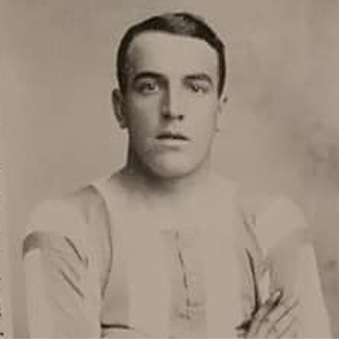
Tom Morris
After arriving from Grimsby Town in the summer of 1907, Tom Morris instantly established himself as first choice centre half, playing the first 41 games of the 1907-08 season. An injury sustained in a 1-0 defeat to Crystal Palace on February 29th 1908 ruled him out for the remainder of the campaign and by the time he was fit again, Tom found Joe Wilson had overtaken him in the pecking order. As a result, he made just nine more appearances for the Albion before moving in March 1909 to Leeds City, the forerunner of Leeds United. Tom became a popular figure at Elland Road, playing 109 times before leaving in May 1913 with coaching roles at Scunthorpe & Lindsey United and Coventry City following. He lost his life at the Front.
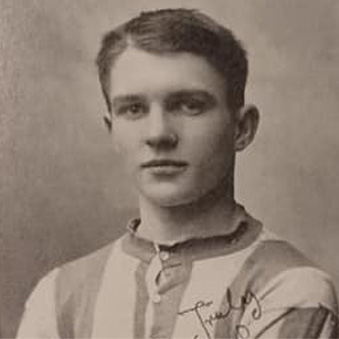
Jimmy Smith
When people talk about the greatest goalscorers in Brighton history, then little Jimmy Smith should be included in the debate alongside the likes of Peter Ward, Bobby Zamora and Glenn Murray. Plucked from non-league football, Jimmy scored twice on his debut against Watford and had a goals-per-game ratio to match any of the greats, having scored 40 times in 65 games between his arrival from Hanley Swifts in January 1911 to his departure to Bradford Park Avenue in November 1912. That haul included 27 goals in 32 appearances in a 1911-12 season in which he netted four hat-tricks. Needless to say, the big boys from the Football League came sniffing and it was PA who parted with a huge fee of £735 – around £80,000 in today’s money – for his services. Jimmy continued to score for fun up in Yorkshire, netting 60 times in 100 games to take his professional record to 100 goals from 165 appearances. Jimmy would have been in the prime of his career during the conflict but he never got the chance to add to those impressive numbers after he tragically lost his life on the Western Front in 1918, just a few weeks before he was due to return home for his wedding.
And the first Albion man to have lost his life in the war…
Fred Bates
While professional football continued through the first year of the war, one man wasted no time in signing up after the call to arms – Goldstone groundsman Fred Bates. Fred served with the Royal Scots Fusiliers and became the first Brighton representative to lose his life after being killed in action in November 1914. After the news came through, the Albion dedicated their home game against Croydon Common to Fred. A collection raised £3 2s 9d for Fred’s widow while the players did their part, winning 4-1 thanks to a Billy Miller hat-trick and one from Bill Jones.


